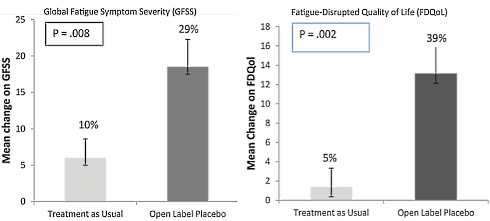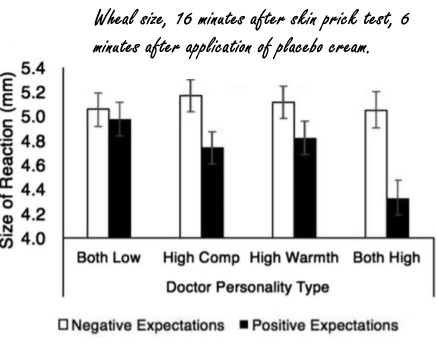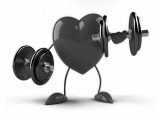|
Definition: "An ergogenic aid is any substance or phenomenon that enhances performance "
|
|
||||||||
08.05.2018 |
|
|
Need more energy? Take a placebo!
Study
The subjects knew they used placebo. The researchers explained to them that there are no active substances in the placebo, and that they wondered whether the subjects would get more energy due to the placebo effect.
Before and just after the experimental period, the researchers determined the fatigue of the subjects with some validated questionnaires.
Results
A week after the first experimental period ended, the second phase of the experiment began. The former placebo group [OLP] did not take placebo for 3 weeks, the former treatment-as-usual group [TAU] did.
Fatigue increased slightly in the former placebo group, but there was no significant rebound. At the same time, fatigue scores plummeted at the former treatment-as-usual group.
Conclusion
"Fooling or deceiving patients may be unnecessary for placebo effects to produce benefits, with automatic neurological processes being a possible mechanism for the effects. This has revolutionary implications for how we might exploit the power of placebo effects in clinical practice."
"Cancer survivors report that fatigue is their most distressing symptom, even more distressing than other symptoms like nausea or pain, and clinicians struggle to find ways to help them with it. The effects of the placebo pills on fatigue were so dramatic that we had a number of the study patients ask if they could be given more placebo pills. For ethical reasons, we were unable to do so."
"Participants still had benefits three weeks after they stopped taking the placebo pills, which hasn't been shown before", adds co-author Kevin Fontaine. "The extension of benefits even when the placebo pills are discontinued has been a surprise finding that has many placebo researchers excited."
Source: More: Archives:
|
|
|||||||||||||||||








